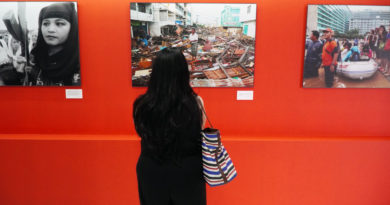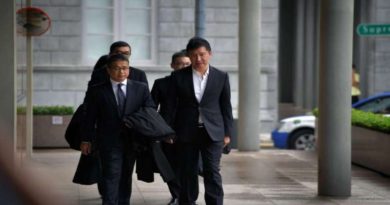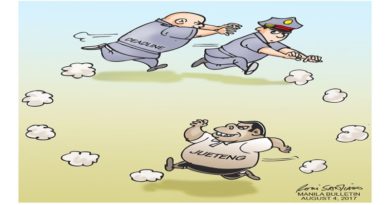EDITORIAL-OPINION: BP- Coronavirus balancing act
BANGKOK POST
 With the unprecedented, devastating impact of the Covid-19 outbreak on the economy and public health, the government should come up with integrated strategies that can keep the economy rolling while preventing healthcare facilities from reaching breaking point. Sadly, such efforts have solely been driven by the private sector.
With the unprecedented, devastating impact of the Covid-19 outbreak on the economy and public health, the government should come up with integrated strategies that can keep the economy rolling while preventing healthcare facilities from reaching breaking point. Sadly, such efforts have solely been driven by the private sector.
As it has splashed out a 1.9-trillion-baht stimulus package on handouts, loans and corporate bailouts, the government should invest in or support businesses that can strengthen efforts to prevent the virus’ transmission, treat the infected and create more jobs.
 Ads by: Memento Maxima Digital Marketing
Ads by: Memento Maxima Digital Marketing
@ [email protected]
– SPACE RESERVE FOR YOUR ADVERTISEMENT
By June, at least seven million workers are estimated to be jobless because of shutdowns from the pandemic. The possibility that the health crisis will linger a year or longer is not out of sight. So strengthening the public health system and rebooting the economy will be critical.
Some businesses have shown how it can be done. Bra makers in Thailand and Japan have repurposed women’s underwear to ease the shortage of face masks. Realising similar materials from their existing cloth linings can be used for masks, they have shifted some facilities to producing masks.
 Ads by: Memento Maxima Digital Marketing
Ads by: Memento Maxima Digital Marketing
@ [email protected]
– SPACE RESERVE FOR YOUR ADVERTISEMENT
Facing lower demand for lingerie products, local bra maker Sabina recently repurposed its factory in Yasothon province to produce masks that can prevent Covid-19 transmission and the inhalation of PM2.5 fine dust particles, according to Prachachat newspaper. The washable products have attracted high demand from consumers, prompting the company to expand production and thus keeping workers onboard.
Several small and medium-size enterprises have also produced alcohol-based hand sanitiser products to ease the shortage. Sugar producer KTIS Group, for instance, uses alcohol derived from its existing sugar production to produce these products, according to Prachachat. Masks and hand sanitisers have been in shortage for months and the government has done too little to make them widely available.
 Ads by: Memento Maxima Digital Marketing
Ads by: Memento Maxima Digital Marketing
@ [email protected]
– SPACE RESERVE FOR YOUR ADVERTISEMENT
Meanwhile, governments in countries such as the US, France and Spain have appealed to the automotive industry to repurpose their car factories for the production of mechanical ventilators, which are vital for Covid-19 patients with breathing difficulties. The Thai automotive industry, which is facing declining demand, should have been consulted whether this kind of repurposing is possible.
Treatment and care for Covid-19 patients have also overburdened healthcare resources. Some healthcare facilities in Thailand have called for the recruitment of paid volunteer nurses. The government should proactively promote full-time hiring of laid-off workers from service industries to work as assistants in hospitals. In Singapore, flight attendants have been trained and redeployed to assist in medical departments.
 Ads by: Memento Maxima Digital Marketing
Ads by: Memento Maxima Digital Marketing
@ [email protected]
– SPACE RESERVE FOR YOUR ADVERTISEMENT
Telemedicine, which is being used throughout the world to fight the coronavirus pandemic as it prevents patients from going to hospital, has also been neglected by the government, even though platform operators are waiting for state support.
Nobody knows when the outbreak will be completely contained. But people need to be assured that the public health system is stable enough so that they are safe to go to work or socialise. With the creation of those and other jobs, laid-off workers will no longer rely on state handouts.
The far-reaching impact of the outbreak calls for the government to think outside the box when it comes to tackling the health crisis and creating jobs.
EDITORIAL
.











